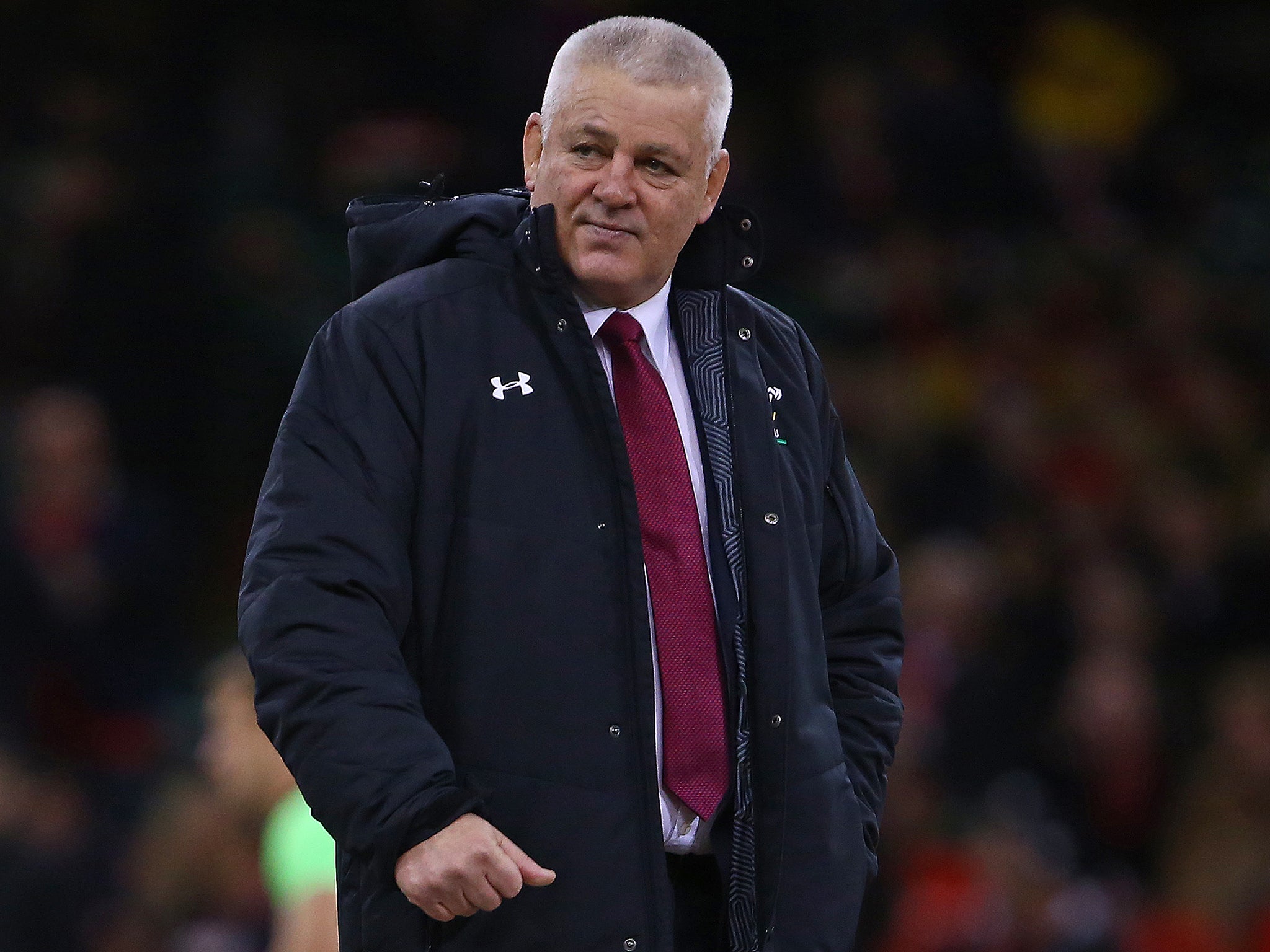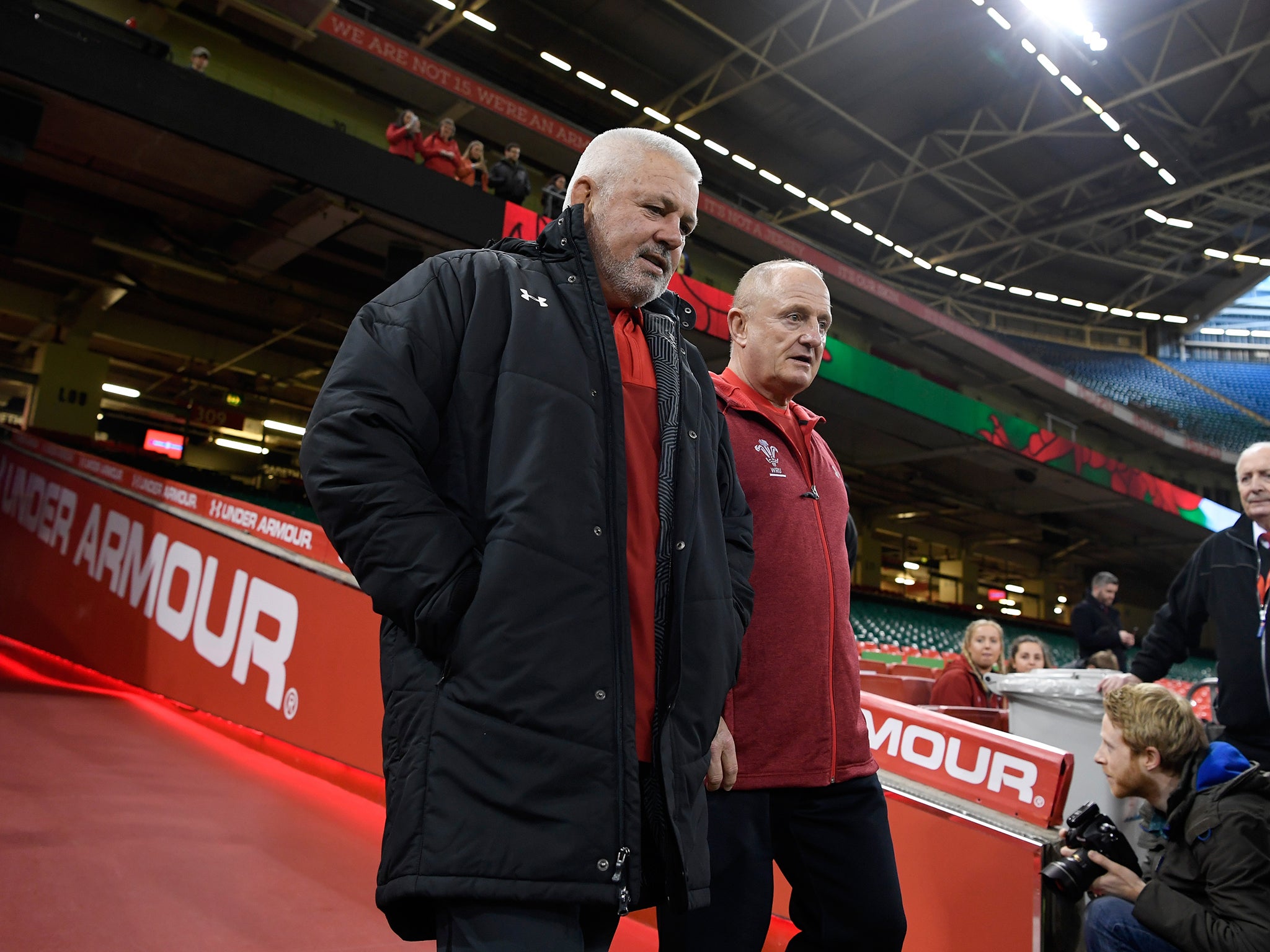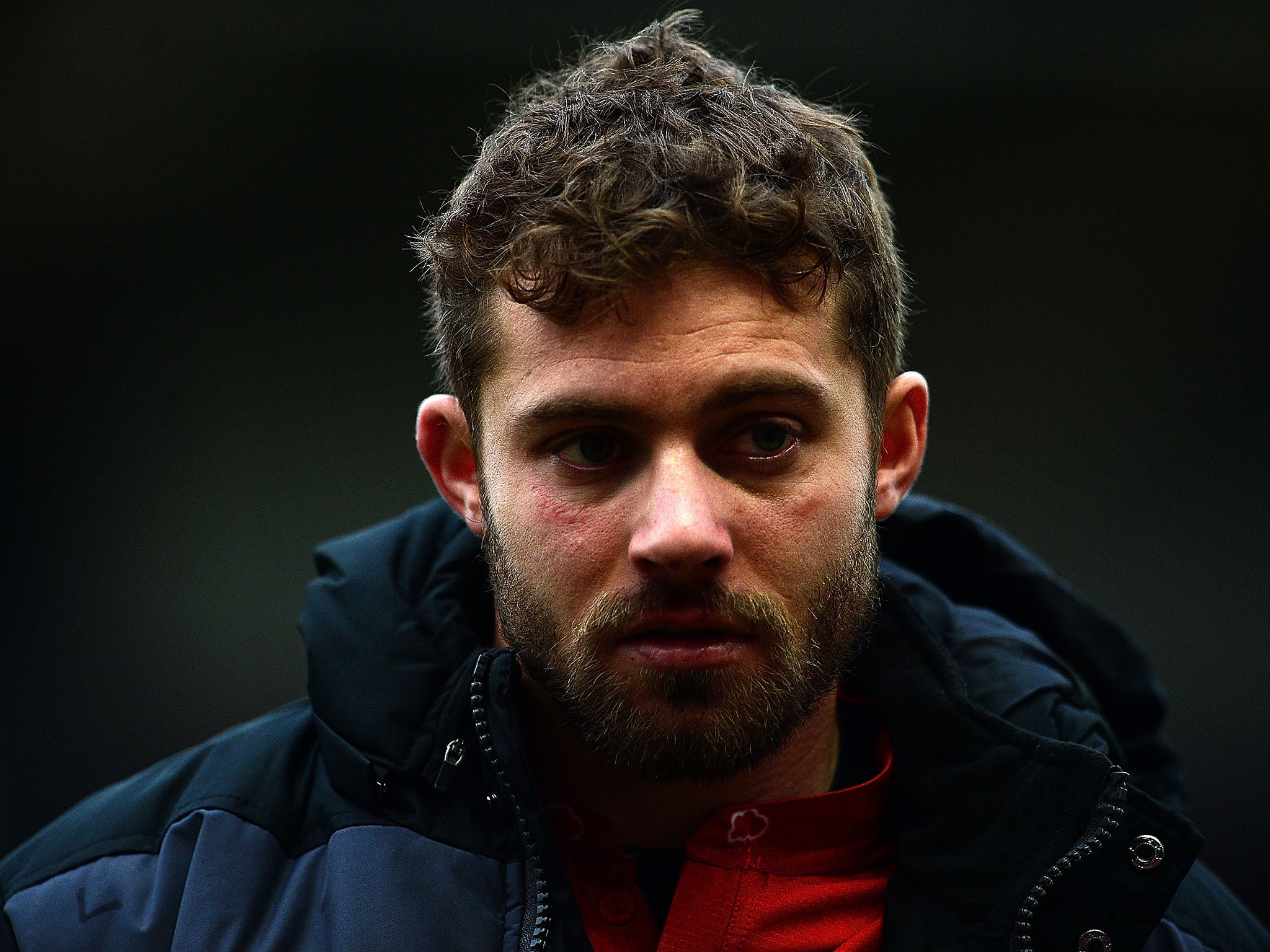Six Nations 2018: Wales need to find the next level in clinical finishing if Warren Gatland's attacking switch is to pay off
With more injuries than most, Gatlandfaces a huge amount of pressure to make his new system work enough to take down the likes of New Zealand and England

A nine-minute spell when Wales played New Zealand last November summed up where Warren Gatland’s men must improve to become contenders on the world stage.
Fifteen minutes into a game Wales would eventually go on to lose 18-33, All Black scrum half Aaron Smith found himself in space deep in his opponent’s 22 following a bullocking Rieko Ioane break and off-load to his diminutive team-mate.
Knowing he was a long way from support, Smith slowed, checked his run, stepped to the right and floated a sublime 20-yard pass off his wrong hand for winger Waisake Naholo to score without needing to break stride.
As exercises in execution go, it pushed perfection.

By contrast, nine minutes later Wales full back Leigh Halfpenny was put away down the right hand short side following a strong charge from flanker Josh Navidi with winger Hallam Amos free outside and with the try line beckoning.
But the pass was rushed and hit high on Amos’s shoulder. The winger couldn’t grasp it and the chance went begging.
Wales were outscored in the match by five tries to two as they repeated the failings from a week before, when they had also been given a masterclass in finishing by Australia.
Gatland has placed a strong emphasis on putting width on the ball, moving away from the more direct trucking up-the-middle game loosely termed ‘Warrenball’ Wales have favoured since the New Zealander took over in 2008.
But with width comes pressure on skills and Wales must improve the delivery of their passing game to reproduce the all-court game they crave to move from a middle ranking international team to consistently challenge the likes of New Zealand, Australia and England.
Halfpenny, under pressure for his place ahead of Saturday’s eagerly-anticipated Six Nations opener against Wales, has retained his position at full-back with Gatland already shorn of five of his British and Irish Lions through injury.
Despite only beating Georgia and South Africa last autumn, the veteran Scarlets full-back insists Gatland’s men remain on course to deliver at next year’s World Cup in Japan.
“We took huge steps forward in the autumn and it’s incredibly important we kick on and improve in the Six Nations,” Halfpenny said.
“That’s what we’re always looking to do. To get better and winning trophies as a squad. The long-term goal is still to win the World Cup. That belief is still there.

“There were games where we frustrated because we’d played so well and showed signs of making huge steps forward in terms of how we’re looking to evolve our game and play an exciting brand of rugby.
“The frustration came because at times we didn’t finish some of those chances we’d created. That’s the goal and the hunger is there to improve in that area when we create chances, being clinical.”
With Gloucester’s Owen Williams hampered in his selection hopes by the lack of a release clause in his contract with the Premiership outfit, Gatland has opted for Scarlets New Zealand-born Hadleigh Parkes at inside centre alongside Rhys Patchell at fly-half in Dan Biggar’s absence.
Parkes, who scored two tries on his debut against South Africa last December, will have Scarlets team-mate Scott Williams outside him. But reigniting his regional partnership with Patchell will be the key to driving Wales’ attacking and defensive game against Gregor Townsend’s much fancied Scotland team.
“It’s a massive game for Wales,” Halfpenny added. “Like every other Six Nations, that first game you really want to get a win because it helps build up the momentum and confidence going into the tournament.
“It’s going to be a huge challenge against Scotland. They’ve played some fantastic rugby in recent years and it’s always a huge physical battle against them.
“Hadleigh was fantastic against South Africa. He’s a great player, very strong and physical and he shows some nice touches as well with ball in hand. He’s a great guy to have around the squad.”

While Halfpenny’s perceived lack of attacking threat has been overplayed, his try-scoring record of 12 in 78 Tests is significantly bettered by Scotland’s rapier No15 Stuart Hogg who has 17 tries in 55 Tests.
Halfpenny’s world-class goal-kicking and exceptional defence make him arguably a more rounded package at the back but the pair’s head to head will make fascinating viewing on Saturday.
“Stuart Hogg is a class act, a fantastic player,” Halfpenny said. “I was devastated for him on that Lions tour with the injury that ended the tour for him. He was in fantastic form going on that tour and the accolades he picked up during last year’s Six Nations were absolutely deserved. He’s huge threat with ball in hand.”
All Wales will be hoping the same can be said of Halfpenny at the final whistle on Saturday. For Wales to thrive, they must sharpen their threat.
Join our commenting forum
Join thought-provoking conversations, follow other Independent readers and see their replies
Comments
Bookmark popover
Removed from bookmarks